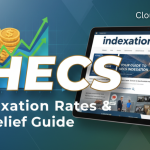Introduction to HECS and indexationnews com
Higher education is a new and fascinating adventure, but it may also be a little scary at first. Part of that process for many students is learning about their financial responsibilities. The Higher Education Contribution Scheme (HECS) is a program that helps Australian students pay for college. An often-overlooked aspect, indexation, comes with this method, though.
IndexationNews.com is ready to help with all your questions about HECS indexation rates and available relief choices. It is critical to understand the significance of these numbers for your future financial planning whether you are just beginning your academic journey or are approaching graduation. How does HECS indexation impact you, the student? Let’s find out!
What is HECS indexationnews com?
To learn everything about the nuances of HECS indexation rates, you can visit HECS indexationnews.com. Information on the Higher Education Contribution Scheme (HECS) and how to manage your loans is updated and provided here for students and graduates.
High Education Loans and Scholarships (HECS) is essentially an Australian program that helps pay for college. How these loans are modified over time in response to inflation rates is the main emphasis of the indexation news element.
Current rates, changes in the past, and forecasts that affect payback obligations are all kept up to date on the website. Keeping up with the latest information through this thorough gateway is crucial for anybody dealing with the intricacies of student debt.
Access to correct information is crucial for the financial planning of anybody, whether they are now students or recent graduates. By providing consumers with information about their financial obligations linked to HECS loans, Indexationnews com hopes to demystify the process and empower them.
The History of HECS Indexation Rates
Australia’s Higher Education Contribution Scheme (HECS) first went live in 1989. By extending the payment deadline for tuition until after the student had graduated, it hoped to lower the financial barrier to higher education.
Indexation rates were simple in the beginning. Inflation was the main factor they used to alter student loans. As a result, debtors’ HECS liability increased over time.
Methods for indexation changed as the economy developed. The government began to use the Consumer Price Index (CPI) more often in 2005 as a tool for modifying HECS obligations.
To keep repayments reasonable and to account for the growing expense of higher education, this adjustment mirrored larger economic developments.
Changes in Australian legislation and public opinion about the financing of higher education have shaped the evolution of HECS indexation. Graduates’ current approaches to handling their financial responsibilities are heavily influenced by each of these changes.
How Does HECS Indexation Affect Students?
The financial prospects of students can be greatly affected by HECS indexation. Their HECS-HELP balance will increase in proportion to the indexation rate. In the long run, this can lead to a bigger payback bill for graduates.
Grasping this process is vital for a lot of pupils. It’s important to consider both the amount they borrow and the impact of inflation on their debt levels. The burden of making these payments grows in tandem with the expense of living.
In order to avoid unpleasant shocks, students should prepare for the possibility of increases in indexation rates. Being proactive might entail looking for ways to earn more money while studying or making a better use of your budget.
Plus, being cognizant of these changes aids in making educated choices about voluntary repayments and future financial preparation after graduation. To stay informed about the latest trends and projections about HECS debts, it’s a good idea to use websites like indexationnews com.
You May also Like: Xlecz Tech — Your Fast-Track Guide to Xlecz Innovation
Understanding the Impact of HECS Indexation on Graduates
A graduate’s financial situation might be greatly affected by HECS indexation. The amount owing on HECS debts increases in tandem with the cost of living as a result of indexation rates.
Repayments may rise for graduates as time goes by. Particularly for individuals moving into lower-paying occupations or sectors, this transition can put a strain on finances.
In order to manage expectations and arrange finances properly, it is essential to understand how these rates function. Current indexation news is important for graduates to be updated about since it has a direct influence on their student loans.
Decisions in life are impacted by it, not only by the figures. As debt levels rise, it could impact big life decisions like purchasing a house or going back to school. Graduates can better handle possible problems and make educated financial decisions throughout their careers if they stay vigilant in monitoring these developments.
Relief Measures for HECS Debt: Voluntary Repayment, Income Contingent Loans, and Other Options
A route out of financial hardship is possible with the help of HECS debt relief programs. Repayment that is done voluntarily is one viable choice. A more transparent road to financial independence becomes available when total debt and interest incurred are substantially diminished by extra payments.
You should also look into income contingent loans. Make sure you only pay what you can afford by adjusting the payback amount to match your earning level. In times of decreased income, it is intended to alleviate some of the strain.
Also, there are a number of programs available to help kids who are struggling. Among the many benefits of these programs is the information they give on debt management, which may offer options for short-term relief or payment delays.
It may be helpful to consult with financial advisors who focus on student debt issues. They are well-versed in the various possibilities and can assist you in developing a plan that is tailored to your unique scenario.
Tips for Managing Your HECS Debt and Minimizing the Effect of indexationnews com
Though there are ways to alleviate the strain, managing your HECS debt can be a daunting task. Make voluntary repayments first, if at all feasible. Both your principal and your future interest will be diminished as a result of this.
Use indexationnews com and similar tools to keep yourself updated on indexation rates. Gaining a grasp of these rates allows you to foresee potential changes and make appropriate preparations.
You might want to think about making a separate line item in your budget for your HECS payments. To prevent unpleasant shocks in the road, make this a top priority in your financial planning.
Investigate government assistance programs, such as income-contingent loans, if you are struggling financially. In times of difficulty, these choices may bring some relief.
Consult with financial advisors who focus on helping students manage their school loans. To help you remain on track with payments even when life throws you curveballs, they can provide individualized methods.
Conclusion
With the complexities of indexation rates involved, managing HECS debt may be quite stressful. If you want to know how these changes influence your money as a student and a graduate, you need to stay updated through sites like indexationnews com. Being well-informed is crucial when it comes to understanding repayment plans and exploring relief possibilities.
To make educated choices regarding your future finances, stay updated on HECS indexation trends. Make use of the resources at your disposal and investigate all of the repayment choices that might work for you. You may better manage your HECS debt and stay focused on your education with the help of correct information found on sites like indexationnews com and proactive financial planning.











